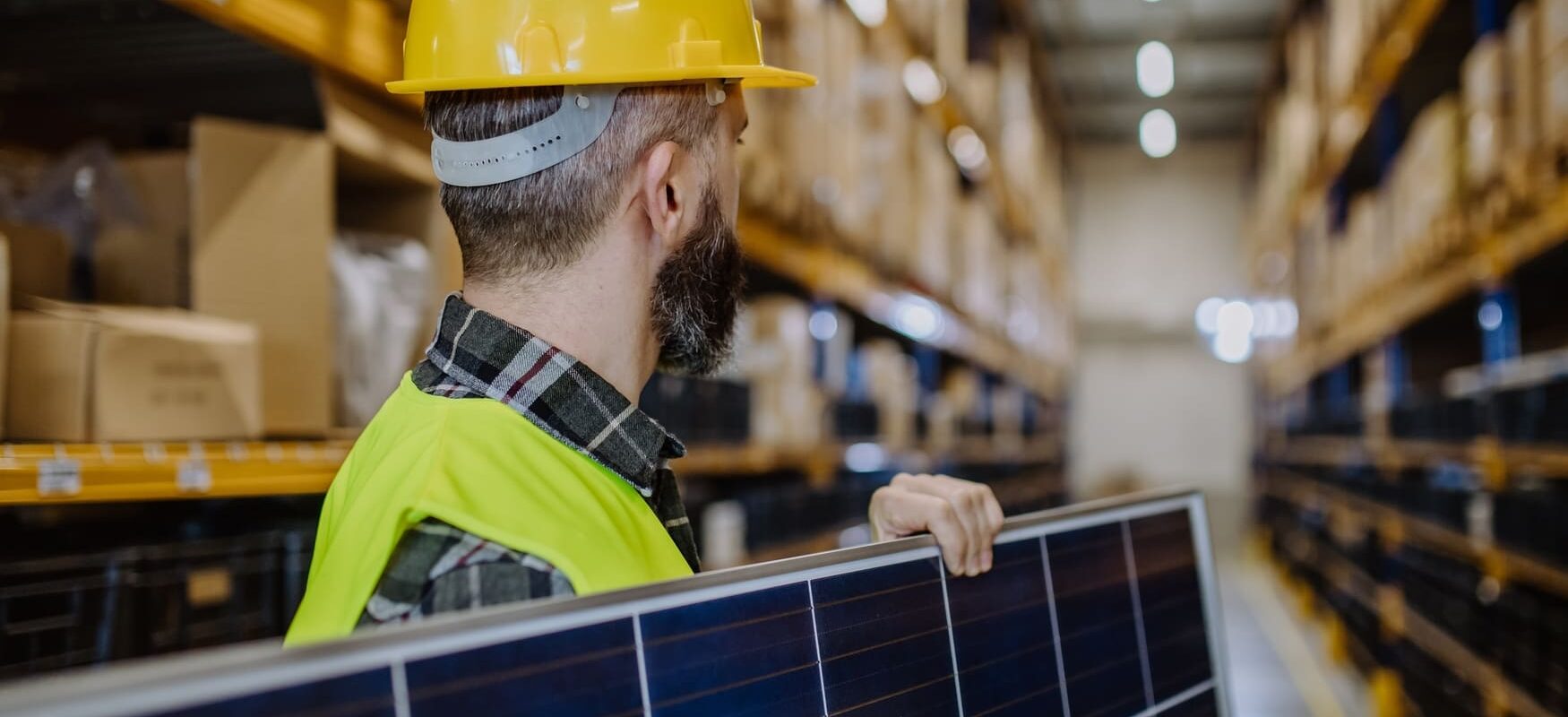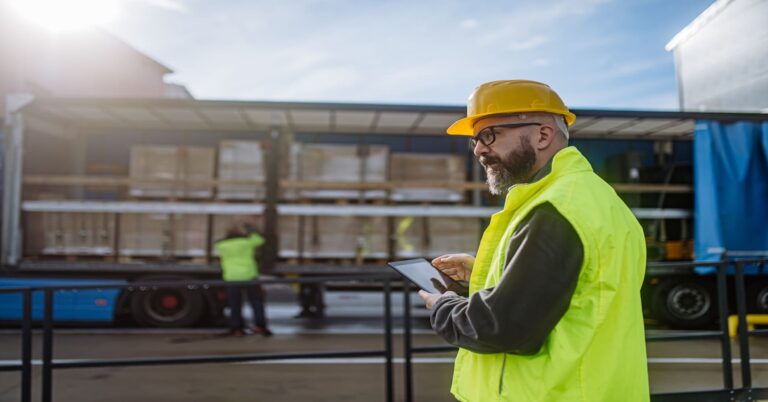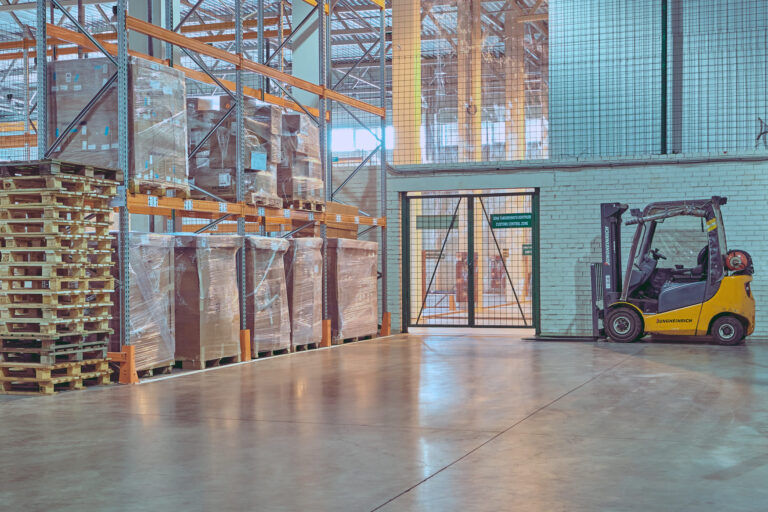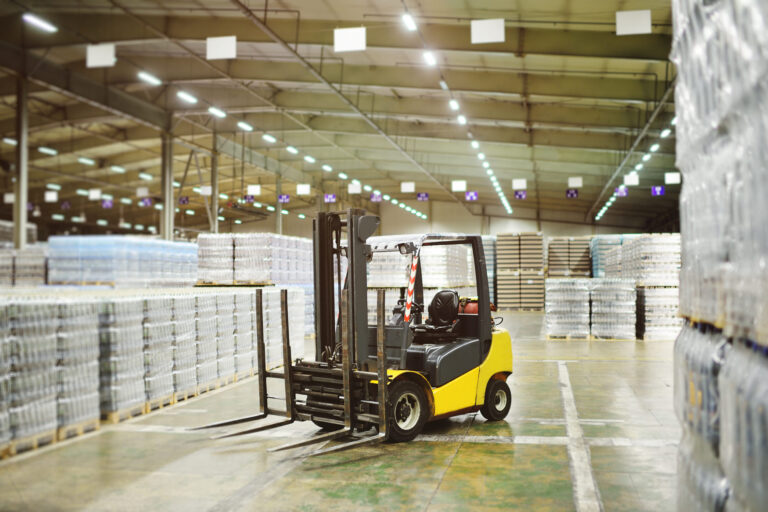Solar Panel Logistics Challenges & Solutions

The solar industry’s rapid growth has created unique logistics hurdles. Companies “must find ways to overcome the unique logistical challenges” of moving heavy, fragile panels through the supply chain. In fact, over 80% of solar PV modules are manufactured in Asia, so U.S. projects depend on long ocean and overland shipments. Long distances and multiple handoffs “add cost, complexity, and frequently risk” to the solar panel supply chain. Transporting panels from production through final-mile delivery safely and efficiently, requires specialized experience and systems.
Key Challenges in Solar Panel Logistics
1. Fragility and Risk of Damage
Solar panels are extremely fragile despite their sturdy outdoor design. Even slight pressure or impacts can crack the glass or cells. To avoid costly breakage:
- Vertical racking and padding: Store panels on vertical racks with foam corner protectors to evenly distribute weight. This minimizes pressure and prevents micro-cracks.
- Climate-controlled storage: Keep warehouse areas temperature- and humidity-controlled to prevent thermal stress or moisture damage.
- Protective handling: Use soft-padded forklifts and straps, and never stack panels flat on each other without cushioning. These measures ensure panels remain crack-free.
2. Large and Bulky Dimensions
Solar panels are large and non-standard, making efficient transport critical. Standard containers and trucks may not fit oversized panels, driving up shipping costs. Best practices include:
- Specialized containers: Use flat-rack or open-top ocean containers for bulky loads. These accommodate panels that exceed standard container dimensions.
- Heavy-lift transport: Partner with carriers offering oversize freight expertise. Providers like DSV highlight “dedicated heavy-lift engineers” and oversize transport options for non-standard solar equipment.
- Secure tie-downs: Ensure panels are firmly strapped and immobilized during transit. Pre- and post-shipment inspections can catch any shifting or damage.
3. High Theft and Security Risks
Given their high value, solar panels are tempting targets for theft. Analysts note that “high-value goods such as … solar panels” are frequently targeted by thieves. To reduce risk:
- Real-time tracking: Equip shipments with GPS/RFID trackers so you know panel location at all times. Asset-tracking provides immediate alerts if a load deviates.
- Secure storage: Use warehouses with 24/7 surveillance, gated access and security patrols. Treat panel storage like high-value inventory.
- Insured, vetted 3PLs: 3PLs understand that solar panels are high-value items and provide the careful storage needed.
4. Regulatory and Customs Compliance
Solar panels crossing borders face complex regulations and tariffs. Compliance best practices include:
- Stay current on trade rules: Track international standards (e.g. IEC or UL certifications) and environmental regulations in target markets.
- Use customs experts: Employ specialized brokers to navigate duties and paperwork. Expert customs services can make operations as simple and cost-effective as possible and help clients benefit from available tax advantages.
- Accurate documentation: Prepare complete shipping documents (invoices, packing lists, bills of lading, etc.) and correct HS codes. Misclassifying panels can trigger steep anti-dumping tariffs – for example, solar modules are often coded as 854140 for customs.
Best Practices for Efficient Solar Panel Logistics
1. Optimized Solar Panel Warehouse Storage
Proper warehousing is crucial. Facilities should use vertical racking and padding to prevent panel-to-panel pressure, and maintain climate control to protect sensitive electronics. Inventory management is also key: modern Warehouse Management Systems track panel stock in real time. Best practices include:
- Vertical racking: Store panels upright on tall racks to maximize space and avoid flat stacking.
- Climate control: Keep storage temperature and humidity in optimal ranges to prevent warping or moisture damage.
- Inventory tracking: Use barcode or RFID systems for real-time location and stock status.
- Organized layout: Segregate panels by project or type, clearly label them, and rotate inventory (FIFO) to avoid overstaying storage life.
2. Choosing the Right Solar Panel Transport Mode
Solar panels can ship via air, sea, rail or truck depending on needs. Ocean freight (flat racks, breakbulk, or roll-on/roll-off) is cost-effective for large, international loads. Road transport (tractor-trailers) is ideal for domestic distribution and last-mile delivery. Rail offers a green, long-distance alternative where available. Air cargo provides speed for urgent shipments.
- Ocean freight: Use FCL or LCL containers; secure panels on flat-racks when needed.
- Road haul: Use cushioned tie-downs and shock-absorbent mats. Inspect loads for damage at pickup and delivery.
- Rail freight: Consider bulk rail if traversing the country, connecting to warehouse hubs.
- Air freight: Reserve for high-priority shipments or lightweight panel arrays that justify the cost.
3. Partnering with Specialized 3PLs
Working with a 3PL experienced in solar logistics greatly simplifies operations. Right partner lets solar companies focus on core business functions while ensuring that their logistics and warehousing needs are met. A knowledgeable 3PL brings specialized equipment (like padded lifts) and processes (like strict damage checks). When evaluating 3PLs, look for:
- Solar-specific services: Providers offering end-to-end solar panel logistics services, such as route planning, heavy-lift handling, and 24/7 emergency transport.
- Technology and visibility: Use 3PLs with modern IT tools (customer portals, APIs) so you can track shipments.
- Local warehousing: A strong 3PL will locate inventory close to project sites. Storing panels “as close to the final installation site as possible helps reduce overall project cost” and delays. A national 3PL network can effectively act as the “solar panel warehouse near me” that keeps panels ready for use.
4. Sustainable Solar Panel Supply Chain Practices
- Use electric or hybrid trucks for local distribution.
- Optimize delivery routes to cut fuel consumption.
- Recycle packaging materials to minimize waste.
Conclusion
Efficient solar panel logistics requires addressing every link of the supply chain. This means secure, climate-controlled warehouses and careful handling to avoid damage, along with smart transport planning. By following these best practices, for example, using padded vertical racking, partnering with experienced 3PLs, and optimizing routes – manufacturers and distributors can ensure panels arrive on time and intact. Whether you’re searching for a solar panel warehouse or seeking full-spectrum solar logistics services, integrating these strategies will help keep projects on schedule and under budget.
Looking for a reliable solar panel warehouse near you or expert solar panel transport solutions? Contact us today to streamline your supply chain and ensure seamless deliveries!
You may be interested in

Best Practices for Warehouse Receiving Processes
Warehouse receiving is the essential first step of warehouse operations – it encompasses everything from unloading inbound deliveries to updating inventory records. In practice, an effective warehouse receiving process means checking in, inspecting, and storing all incoming goods promptly and accurately. How inventory is received at a warehouse sets the tone for the rest of […]

Bonded Warehousing Solutions: Reduce Duties & Streamline Imports
Bonded warehousing solutions allow importers to store goods without upfront duty payments, effectively creating duty-free storage that boosts cash flow and streamlines the import process. By using a bonded warehouse – a secure facility under customs supervision – companies can defer taxes and tariffs on imported goods until those goods are released for domestic sale. […]

Food Warehousing and Food Grade Warehousing: Challenges and Solutions
Operating a warehouse that stores food requires specialized handling beyond standard warehousing. Food-grade facilities must meet strict sanitation, temperature control, and traceability standards to prevent contamination and spoilage. In fact, “food-grade warehousing is crucial for maintaining product quality, ensuring consumer safety, and complying with industry regulations.”. By upholding these standards, food warehouses become the critical […]
Ready to streamline your warehousing needs?
Request a quote today and discover how OLIMP's tailored solutions can optimize your operations